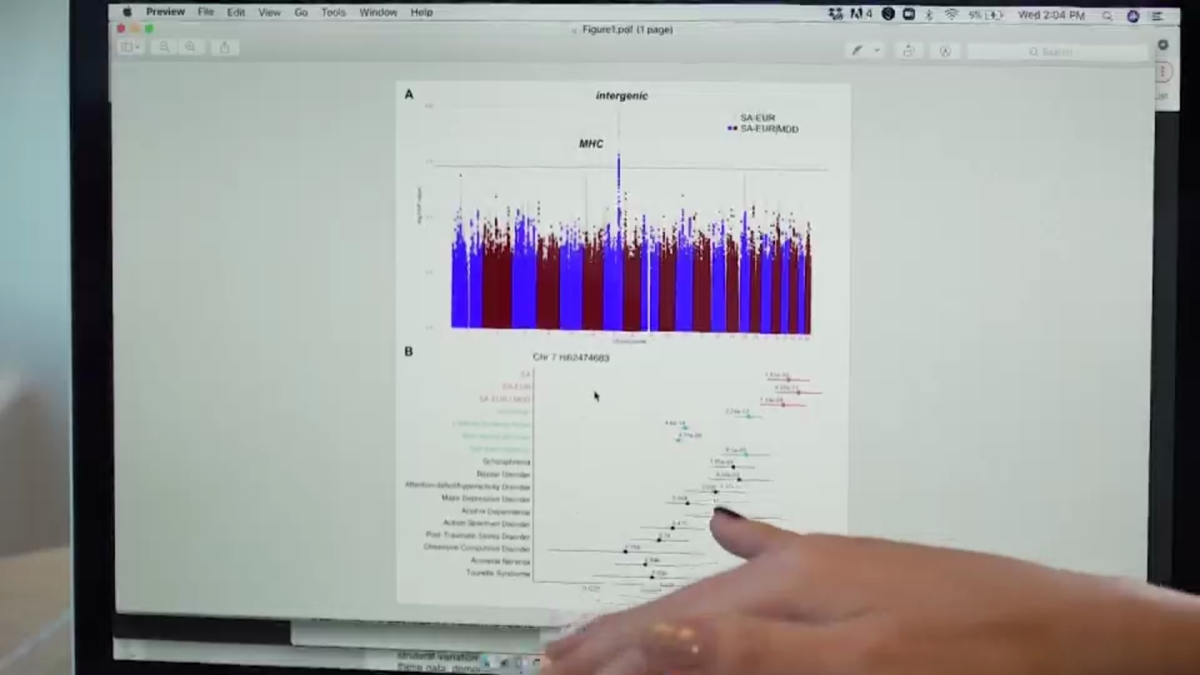
The CDC considers suicide a serious health problem. In 2020, more than 1 million people in the U.S. made a suicide attempt and about 45,000 died by suicide. Suicidal behaviors have been strongly linked to mental disorders, but researchers involved in one of the largest genetic studies on suicide attempts say there may also be a genetic factor.
The CDC considers suicide a serious health problem. In 2020, more than 1 million people in the U.S. made a suicide attempt and about 45,000 died by suicide. Suicidal behaviors have been strongly linked to mental disorders, but researchers involved in one of the largest genetic studies on suicide attempts say there may also be a genetic factor.
Every 11 minutes, someone in the U.S. dies by suicide, according to reports.
"Suicide is the 10th leading cause of death in the United States and it's top three among young adults and adolescents," said Douglas Ruderfer, Ph.D., Associate Professor at Vanderbilt University Medical Center.
Main risk factors for suicide attempts include depression and mental health disorders, but researchers from an international suicide genetics consortium say risk factors may also be hidden within our DNA. They looked at the DNA sequence of 500,000 people and 30,000 were people who attempted suicide.
Get DFW local news, weather forecasts and entertainment stories to your inbox. Sign up for NBC DFW newsletters.
"What we found is that there actually is independent genetic risk that is contributing directly to suicide attempt that is not simply through the risk for psychiatric disorders," Ruderfer said.
The researchers identified that increased risk from a region on chromosome 7. Even after controlling for psychiatric disorders, that risk was still significant.
"It really supports the idea that there's no one risk factor that just defines suicide attempts," said JooEun Kang, MD-PhD Student at Vanderbilt University Medical Center
Local
The latest news from around North Texas.
Genetics is just one of many factors.
"Genetics is not destiny. The hope would be to take that information and to use it as a pathway to understand ways in which we can both reduce risk or find strategies to intervene," Ruderfer said.
About 260 researchers from 20 countries contributed to this study. For every person who dies by suicide, they are 20 attempts. If you are someone you know needs help, call the national suicide prevention lifeline at 1-800-273-talk (1-800-273-8255). Starting in July, this number will be replaced by a three-digit hotline number that is easier to remember-- 988. This number is not yet operational during the switchover.